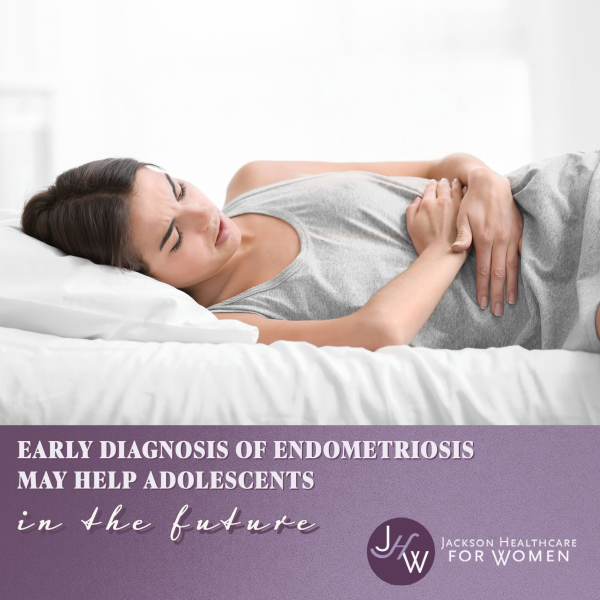Many women and adolescents experience cramping during their menstrual cycle, but if the menstrual cramps are very painful or are accompanied by nausea, vomiting, diarrhea, headaches, muscle cramps and/or wake them from sleep, it’s time to call your ob/gyn. Painful menstrual cramps or as they are medically referred to “dysmenorrhea” may be a sign your child has endometriosis, a condition in which the type of tissue that forms the lining of the uterus (the endometrium) is found outside the uterus. About 1 in 10 women will be diagnosed with endometriosis, usually around reproductive age. If you identify endometriosis early, it can be more easily managed and treated.
According to the American College of Obstetricians and Gynecologists, (ACOG) here are two types of dysmenorrhea – primary (most adolescents experience this type) and second. Most patients with primary dysmenorrhea respond positively to a combination of medical therapies, like nonsteroidal anti-inflammatory agents or hormonal agents to alleviate pain. Additionally, some patients and families may seek complementary or alternative therapies, including an exercise routine or hot water bottles or heating pads. Those with second dysmenorrhea have painful menstruation usually caused by a diagnosed medical condition or disease, which is most commonly endometriosis. However, adenomyosis, infection, myomas obstructions in the reproductive tract, congenital malformations or ovarian cysts can also be the cause.
If endometriosis is identified as the reason for your child’s painful menstrual cramps, medication and/or surgery may address the issue. Surgical treatment of endometriomas include:
Simple puncture: This procedure is completed by draining the fluid from the cyst.
Ablation: Another approach is to drain the cyst and remove its base with laser or electrosurgery.
Cutting away of the cyst wall: This is the procedure of choice to decrease recurrence of disease.
Draining, drug therapy, and surgery: Endometriomas can also be drained, treated with medication, and later removed by surgery.
As with all surgeries, there are risks which your child’s ob/gyn will discuss with you depending on your child’s specific case.
It is quite common for adolescents to face a delayed diagnosis due to problems with insurance coverage, cultural attitudes about menstruation, or perceived lack of interest from health care providers. To help expedite diagnosis, families are urged to contact their child’s ob/gyn if the symptoms mentioned above are experienced to mitigate further issues.
Jackson Healthcare for Women is Mississippi’s leading provider of health care services for women. With 15 physicians on staff, Jackson Healthcare for Women is one of the largest and most respected women’s healthcare clinics in the area.

